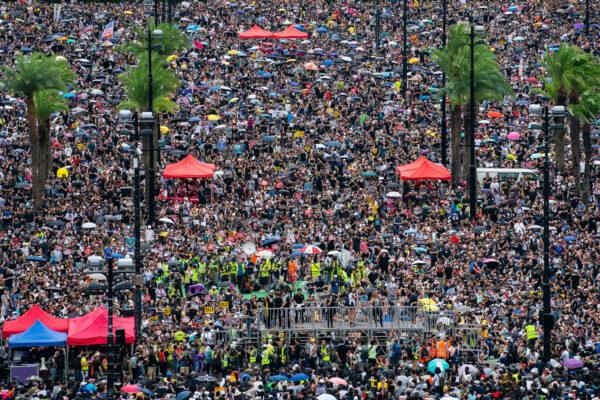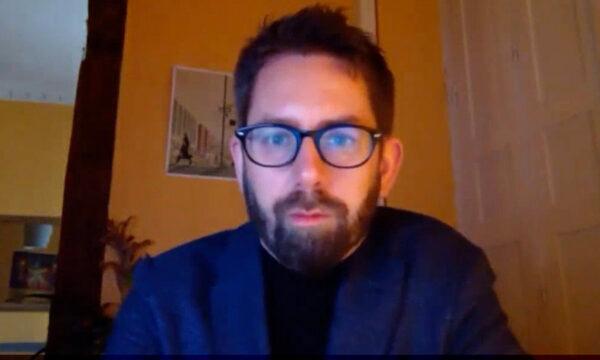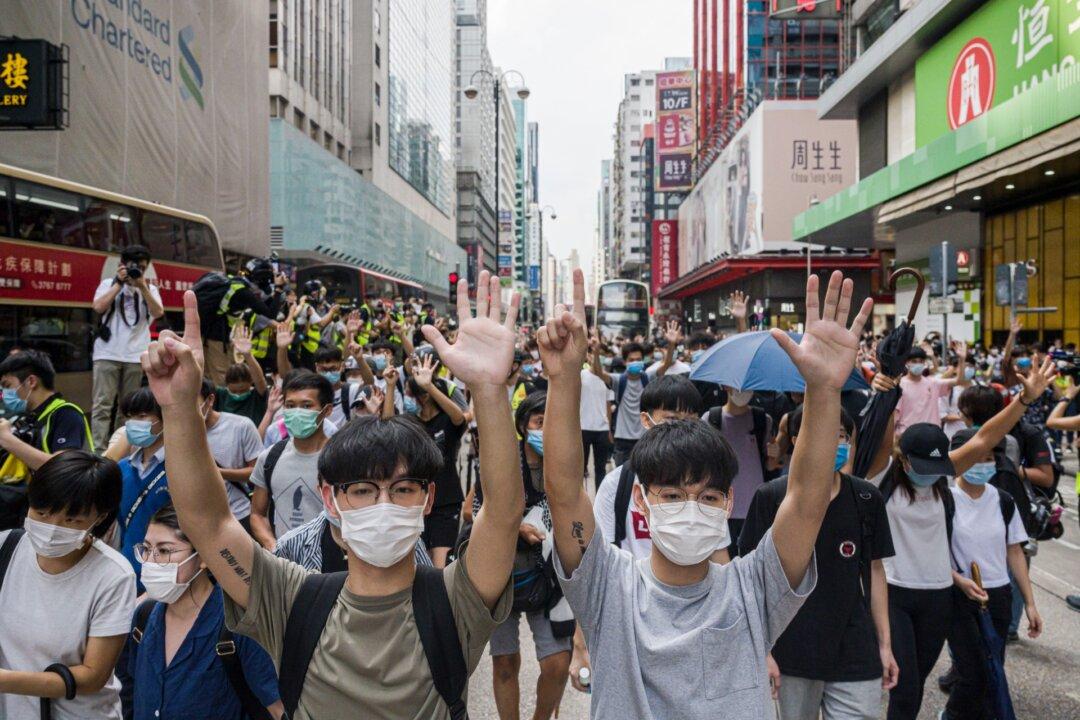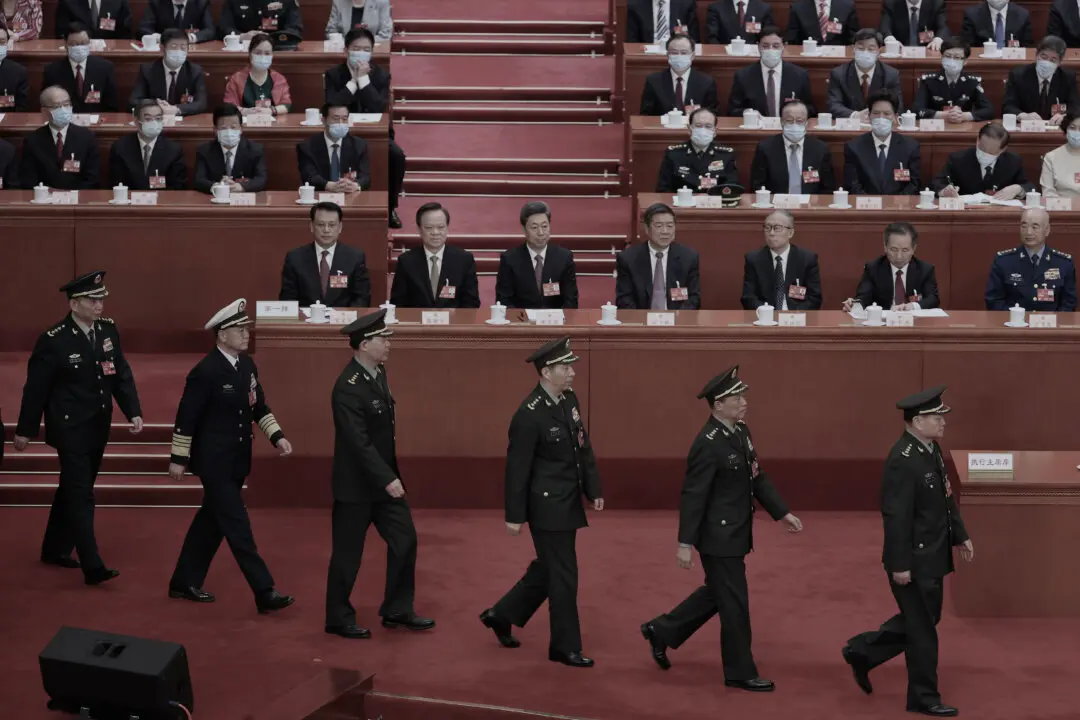On April 14, Chinese-Belizean businessman Henley Lee apparently confessed on China’s state-run CCTV that he funded Hong Kong pro-democracy protests. Ten days earlier, Lee had been sentenced to 11 years in prison.
Formerly known as Li Huxiang, Lee was born in Shanghai and became a citizen of Belize several years ago. He previously served as vice president of Shanghai Meidong Real Estate company.
According to the TV program, after the anti-extradition protest and pro-democracy movement in Hong Kong took place in June 2019, a large sum of mainland funds flowed into Hong Kong and Lee donated hundreds of thousands of dollars in various types of funds to an anti-communist activist surnamed Yang in the United States. CCTV called Lee the “behind-the-scenes financier” for the Hong Kong pro-democracy protests. The program also stated that he had secretly met with Hong Kong pro-democracy activist Leung Kwok-hung and former student federation secretary Alex Chow, and sponsored Joshua Wong, Alex Chow, Sunny Cheung, Nathan Law, and others. He also introduced them to foreign anti-communist politicians and high-level government officials in the West.
On April 2, Lee, age 65, was sentenced to 11 years in prison for “funding criminal activities and endangering national security.”
Lee admitted to all the charges in the CCTV program.

Confession Questioned
However, Lee’s confession has been questioned by the Hong Kong pro-democracy activists he named in the program. Both Nathan Law, who is currently in exile in the UK, and Alex Chow, who is studying abroad, refuted the story and said that they did not know Lee.Law said in a Facebook post that there is no need for any middleman to arrange a meeting with foreign officials. He characterized Lee’s admission as “very CCP [Chinese Communist Party].” “They imagine that we are like pawns in a chess game without internet, connections, or ability.” He noted that his meetings with Secretary of State Mike Pompeo, the British Home Secretary Priti Sushil Patel, and other countries’ ambassadors did not need to be arranged by a middleman. “What sense does it make to use a senior manager of a Chinese company to be the ‘middleman?'” he questioned.
Lee’s TV confession is a “dirty smear campaign” by the Chinese communist regime, Law added.
Taiwan-based current affairs commentator Ling Feng said in an interview with The Epoch Times in September 2019 that since the anti-extradition law movement started, the CCP has been promoting the “foreign forces intervention” theory, which blames the Hong Kong unrest on the United States and Taiwan.
Hong Kong current affairs commentator Johnny Lau warned in an interview with Radio Free Asia (RFA) that the Chinese authorities might use Lee’s confession to implicate others, including those named in the report. Three of the five Hong Kong politicians named in the CCTV report are currently overseas. Only Joshua Wong and Leung Kwok-hung are imprisoned in Hong Kong on other charges. The outside world is concerned about whether Chinese officials will send them to China for trial, Liu told the RFA.
Forced confessions aired on television is a tactic used by the Chinese communist regime for intimidation and propaganda. The regime’s overseas mouthpiece CGTN has been sued by a human rights group in Europe for airing forced TV confessions. It’s one of the reasons UK regulators are revoking its broadcasting license.

Swedish activist Peter Dahlin, who led the NGO Safeguard Defenders in holding CGTN accountable, said in a recent interview with NTD, an affiliate of The Epoch Times, that forced confessions are used by the regime “as a tool of political terror against certain groups of people that they feel are not obeying the party line.”
Domestically, the regime will “use the individual target to create fear in the entire community,” he said. Internationally, “the Chinese [regime] and the CCP are using these kinds of broadcasts as foreign policy tools, often to attack other countries that China has some kind of conflict with,” he added.
In 2016, Dahlin himself was detained in an isolation cell at a facility in southern Beijing for nearly a month on charges of damaging national security. He was released after submitting to a forced confession aired on television.
International media also question Lee’s televised confession. RFA pointed out that Lee’s identity and background are mysterious and complicated. In 2013, he testified against former CCP top official Bo Xilai and his wife.
Lee’s name appeared in the verdict issued by the Jinan Intermediate People’s Court of Shandong Province on the corruption and bribery case of Bo Xilai, the former secretary of the Chongqing Municipal Party Committee.
At that time, he was the first vice president of the Shanghai Meidong Company and testified that in 2000 he and the company transferred $3.22 million to Russell Properties for the wealthy Chinese businessman Xu Ming, and used it to buy a villa on the French Riviera for Bo Xilai’s wife Gu Kailai.
Lee’s testimony was part of the key evidence that led to Bo Xilai’s conviction. The RFA report questioned why Lee was not prosecuted in that case and was allowed to continue operating his business in China, but then later he supported the pro-democracy protests in Hong Kong until he was arrested in November 2019.




